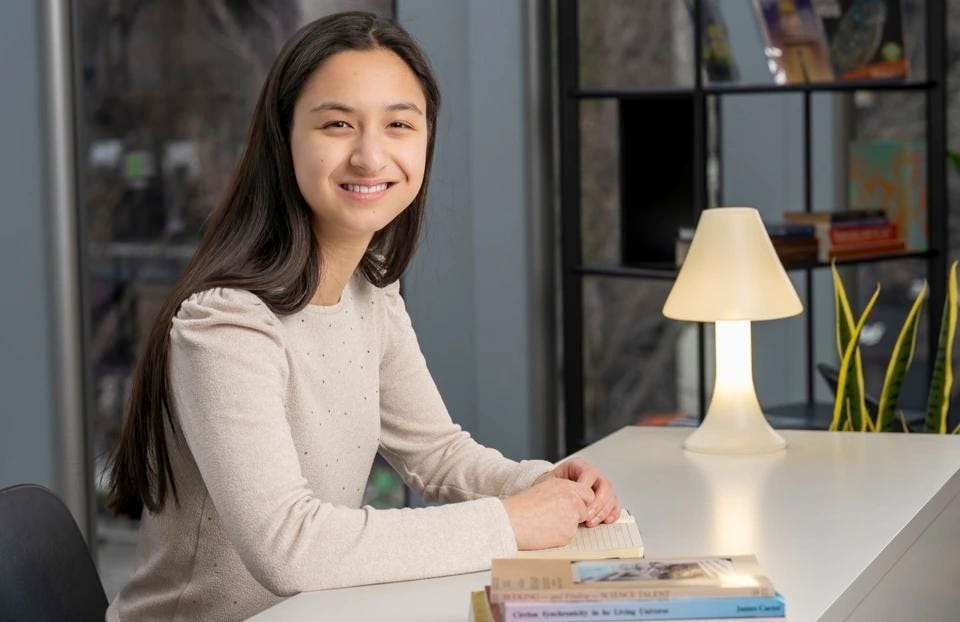18-year-old Rivka Lipkovitz used statistical modeling to show that states adopting strict voter ID laws saw a 2.4% drop in voter turnout. Her research helped her win fifth place at this year’s Regeneron Science Talent Search and a $90,000 prize.
Using a statistical method called matrix completion and synthetic difference-in-differences, Lipkovitz analyzed voter turnout data from 1984 to 2020. Then, she compared that information to states with and without strict voter ID laws. The results showed that states that had passed strict voting laws after 2008 had a lower voter turnout for presidential elections. In addition, states that had passed laws after 2008 had a higher voter turnout for midterm elections.
Journey to the Regeneron STS
Numbers have always been part of Lipkovitz’s life. Before entering the Regeneron STS, she was fascinated by the analytics of fencing tournaments. After listening to fellow members of her fencing team complain about difficult matchups at Nationals, Lipkovitz decided to run the numbers. Using data from USA Fencing’s website, she discovered that the tournament structure disadvantaged certain seeds. She posted her findings on a blog she named Touche Stats.
“I’ve always been fascinated by numbers, and math is my favorite subject,” said Lipkovitz.
When she began her project for the 2025 Regeneron STS, she had to break it down into stages. She began by determining the specific question she wanted to answer: Do strict voter ID laws have differential effects on turnout by election type and timing of adoption? She then reviewed existing papers to identify unanswered questions. As it turns out, midterm elections had not gotten much attention due to top-of-the-ticket issues. This meant that if someone was running for governor of the state, it could have such a significant effect on voter turnout that it becomes hard to measure other factors.
The next step was deciding on a method, which required Lipkovitz to evaluate different models and determine which one was most suitable for the data she had and would yield the most accurate results.
The last step was simply interpreting the results, although those results were not what she expected. Some of the data made sense and showed that strict voting laws reduced voter turnout during presidential elections by 2.4%. However, the data also showed that strict laws appeared to increase voter turnout during midterm elections.
“This led to a new hypothesis: voter mobilization efforts are counteracting the decrease in turnout for late adopters and overshooting in midterm elections,” said Lipkovitz.
Listen to Lipkovitz talk about her vote ID Law research.
https://www.youtube.com/watch?v=Kthi0KA1rQA
Strict voter ID laws affect voter turnout, revealing that their impact varies by election type and adoption timing. The overall effect is that late-adopting states see a 2.4% decrease in presidential turnout, and midterm elections show a surprising 2.5% increase—possibly due to voter mobilization.
Society for Science
For more information on Rivka’s project visit her project site.
Winning at the Regnerton Science Talent Search 2025
Earlier this year, Rivka Lipkovitz was named one of the 40 Regeneron STS finalists and invited to Washington, DC, for the final competition. There, she met 39 other high school students and competed in various challenges.
“The judges always tried to push us to our limits, so it was difficult to gauge my performance in the panel and project interviews,” said Lipkovitz.
After a week-long competition, she was awarded Fifth place overall and won a $90,000 prize.
“I was very surprised when my name was called,” said Lipkovitz, “It was surreal to walk to the front of the stage and receive the trophy; I was so excited I nearly ran.”
The Future
Lipkovitz plans to build on on her research in the future. In college, she wants to major in mathematics, economics, and computer science. Hopefully, she will use that knowledge to improve the data models that helped her win at the Regeneron. In particular, she wants to apply these models to issues in public health and education. She plans to publish the findings from her project later this year.
Click here to learn more about the Society for Science and the Regeneron Science Talent Search. https://www.societyforscience.org/

